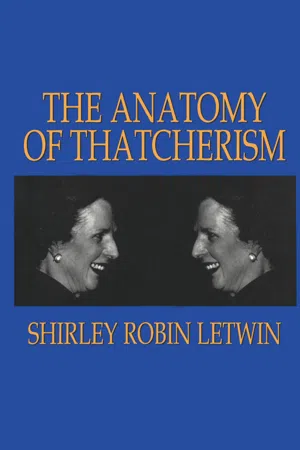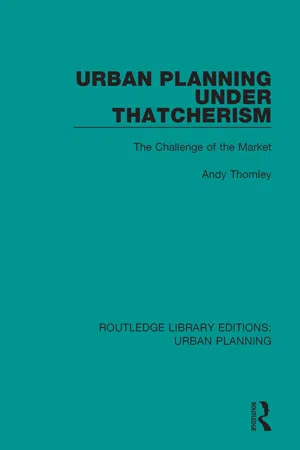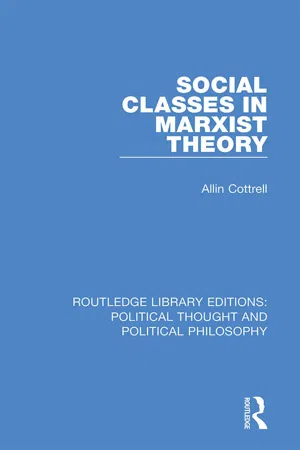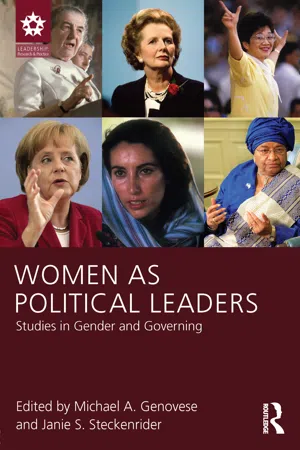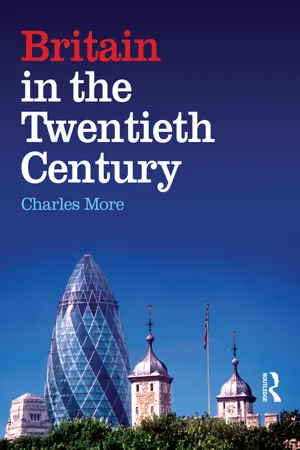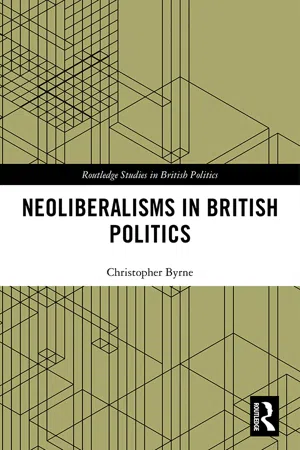History
Thatcherism
Thatcherism refers to the political and economic policies associated with British Prime Minister Margaret Thatcher during the 1980s. It emphasized free-market capitalism, privatization of state-owned industries, deregulation, and a reduction in the role of the state in the economy. Thatcherism also promoted individualism, entrepreneurship, and a strong stance against trade unions, shaping the political landscape of the United Kingdom.
Written by Perlego with AI-assistance
Related key terms
8 Key excerpts on "Thatcherism"
- eBook - ePub
- Stephen J. Lee(Author)
- 2005(Publication Date)
- Routledge(Publisher)
15 Thatcherism AND AFTER, 1979– 95 Mrs Thatcher entered Downing Street in May 1979 committed to a policy of economic and social transformation. For the next eleven years she dominated British politics more completely than any other prime minister of the twentieth century. There were periods in which she was vulnerable, but special circumstances gave her an apparently irresistible momentum which carried her through two further general election victories. In 1983 she won a majority of 144 seats, which she followed up in 1987 with a third successive win, this time by 102 seats. She interpreted these results as a mandate to maintain a course which was so radical as to make some observers refer to the ‘Thatcher revolution’, a phrase which has aroused considerable controversy. Then, in 1990, came a strange twist as Mrs Thatcher was elbowed out of power by sections of the Conservative party which feared that she had become so stuck in her ways that she would lead them to electoral disaster. John Major, widely considered a compromise successor, saw the Conservatives through a fourth consecutive victory in 1992. But, almost immediately afterwards, the party fell into crisis which was all the more serious as it coincided with the recovery of Labour. The two parties also began to compete more openly for the central ground, leading some analysts to claim that the politics of consensus were being revived. THE MEANING AND MOMENTUM OF Thatcherism From the time she was elected leader of the Conservative Party in 1975, Mrs Thatcher made no secret of her dislike of political consensus between the parties, seeing it as ‘the process of abandoning all beliefs, principles, values and policies’. 1 She expressed a commitment to ‘conviction politics’ which was so strong that she became the only British prime minister ever to lend her name to an ideology - eBook - ePub
- Shirley Robin Letwin(Author)
- 2018(Publication Date)
- Routledge(Publisher)
Thatcherism responded to that change by recognizing that in order to ‘relaunch Britain as a successful capitalist economy’, 11 the ‘shibboleths of social democracy’ had to be abandoned. That is why Thatcher Governments undertook to wage war on the unions. They found monetarist policies better suited to ‘the logic of the growing financial and commercial integration of the world economy’. 12 By widening share ownership, they tried to nurture the values and attitudes needed to maintain capitalism in the new circumstances. Even those who do not follow the neo-Marxist line agree that the drive for economic efficiency made reducing the role of government one of ‘the prime objectives of the Thatcher Government, repeated from a thousand platforms and rehearsed in scores of policy documents’, along with endless eulogies of business, profits, the balance sheet and the bottom line. 13 Thatcherism is accordingly considered synonymous with ‘market liberalism’ of which ‘the axiomatic principle’ is that ‘state intervention in what markets did to the economy should be held to a minimum.’ 14 Whereas the preceding interpretation of Thatcherism as an economic enterprise gives it a highly pragmatic character, a third version treats Thatcherism as a dogmatic economic doctrine. Some who trace the ancestry of the doctrine to Adam Smith conclude that Thatcherism is wedded to ‘nostrums devised for an older simpler world of unspoiled markets, a golden age that probably never was’, which makes it incapable of solving the problems of the late twentieth century. 15 Others, who emphasize the influence of the American economist Milton Friedman, equate Thatcherism with monetarism and regard strict control of the money supply as the defining objective of Thatcherism - eBook - ePub
- Peter Kerr(Author)
- 2005(Publication Date)
- Routledge(Publisher)
7 Struggling for definition The evolution of Thatcherism, 1976–97Introduction
So far, I have set out in some detail the context within which Thatcherism was to emerge. Early postwar British politics had been dominated by an evolving struggle for survival between competing and contradictory conceptions of government strategy. A coherent discursive commitment to Keynesianism and liberal-corporatism had served to disguise the fact that government strategy throughout the period had oscillated between two distinct evolutionary trajectories: a tendency towards state expansion and an accompanying tendency towards liberal retreat. This evolving conflict between progressive and classical liberal ideas had been played out within the context of a strategically selective environment which consistently favoured the success of the latter; as a result, British policy-makers were prevented (and indeed through their own actions, prevented themselves) from creating any type of firm and distinctive postwar settlement. Thus, when Britain entered the 1970s amid a heightening of the fundamental conflicts surrounding policy-making, there was a growing feeling that the internal struggle within the country would need to be resolved through some form of settlement. Heath had initially attempted to throw the balance in favour of classical liberalism by resorting to a market strategy which would later be seen as proto-Thatcherite. With the failure of this strategy, the initiative again rested with the forces of progressive liberalism and, indeed, after the election of the Labour Party in 1974, it even seemed that social democracy had gained an ascendancy for the first time. Yet, as we have seen, the latter strategy failed to get off the ground and, in the end, amid a growing political and economic crisis, the International Monetary Fund imposed its own settlement on Britain's long-term postwar conflict. - eBook - ePub
Urban Planning Under Thatcherism
The Challenge of the Market
- Andy Thornley(Author)
- 2018(Publication Date)
- Routledge(Publisher)
Thatcherism maintains certain themes and principles that have always been central to conservatism. On the other hand, major changes are also proposed that imply a radical shift from Conservative attitudes since the Second World War. The post-war consensus is directly challenged in a comprehensive way encompassing its value system and the institutional structure that underpins it. The radical change and the manner and consequences of the new strategy has provoked criticism within Conservatives’ own ranks. There is considerable fear that the dogmatic approach and its lack of compassion could create instability.The Thatcher government is not following a classic liberal line in its economic policy, although it utilises key words such as ‘competition’, ‘free choice’ or ‘individual initiative’ in its rhetoric. Riddell and Gamble, who are representative of the differing views on the coherence of Thatcherism, nevertheless agree that the net effect of the Thatcher economic policy is drastically to reduce the functions, services and employment provided by the state. However, the problem faced by Thatcher’s government in 1979 was that Labour had already cut all the easier options. Further cuts required a challenge to the fundamental purpose of state intervention. Thatcherism is bringing into question the basic values that justify this state role, such as concepts of social justice, equality, or positive discrimination. However, this threatens the legitimacy of the state and the Thatcherist support for economic liberalism has only the concept of free competion to put in its place. An alternative form of legitimacy is therefore developed in terms of allegiance to a strong British identity and a strong purposeful government that is not afraid of taking difficult decisions to obtain the end results that will be in everyone’s interest. King has shown how the antagonism to the values of the Welfare State is one of the key elements uniting the seemingly contradictory strands of Thatcherism.Even though some writers, such as Riddell, are sceptical about the practical effect of Thatcherism there is general agreement that the arrival of Thatcher in 1979 set the scene for important changes. It is agreed that Thatcherism has made huge strides in changing attitudes and values that formed the basis of post-war policy and that Think-Tanks are ‘thinking the even more unthinkable’. The longer a Conservative government following Thatcherist principles stays in power the more entrenched the new values are likely to become. Even Riddell commenting on the second term of office said that this would be ‘more far reaching and would strike at the heart of the postwar settlement’ (1983, p. 238). It is believed that once this ideological victory has been firmly established then the door will be open to more extensive and speedier policies. The third term has witnessed the further extension of the ideology into such key areas of policy as education, health and housing. According to Gamble, Thatcherism’s ‘real achievements have been ideological – shifting the focus of political debate, and making a chain of future institutional and legislative changes possible’ (1984, p. 9). He suggests that the speed of change in different policy areas will vary according to how entrenched the social democratic values are in that particular area. This may explain why the Thatcher government did not fundamentally tackle health and education until its third term. Where does town planning stand in this respect and could the institutional and legislative changes occur rapidly and without much opposition? Planning has a long tradition of working alongside and in partnership with the market yet also has obligations to participate with the public and incorporate the community interest. - eBook - ePub
- Allin Cottrell(Author)
- 2019(Publication Date)
- Routledge(Publisher)
4 concerning the development of capitalist property relations. I shall argue that Thatcher’s economic programme is contradictory and unrealisable in face of the dominant form of capitalist property. On the third question, it must be recognised that although Thatcher’s basic economic programme is not realisable, nonetheless Thatcherism has had real economic and political effects, and even if Thatcherism fails politically as well as in economic terms there will be no wiping the slate clean and acting as if nothing had happened since 1979. I shall offer a contribution to the debate over the political effects of developments in the Thatcher period as far as late 1982, and the effects on the prospects for socialism.7.1 Where Thatcherism came from
As mentioned above, this question breaks down into a number of narrower questions — those of the conditions of formation of Thatcherist ideology, and of the conditions of dominance of that ideology within the Tory party and subsequently in the realm of electoral politics. The answers to these questions are necessarily interwoven and I shall not attempt to answer them in strictly serial fashion, but it should be borne in mind that we are dealing with a complex issue — one which involves processes at the levels of parliamentary politics, international economic relations and popular ideology — and, to echo the conclusions of earlier chapters, not an issue which is reducible to the ‘expression’ of a pre-given class interest.First consider the main strands of Thatcherist ideology. Thatcher and her close associates subscribe to a very definite and clear-cut vision of the problems of British society and the economy, and an equally definite vision of the solutions to those problems. The central problem is seen as state interference, bureaucracy and waste, a cancer which has been developing almost continually at least since the war, enfeebling the economy and popular morality alike. In order to finance its wasteful bureaucracy and misguided charitable programmes the state has levied taxes on a scale which has crushed out incentives for personal effort. Running up against the limits of taxation, the state has also borrowed and ‘printed’ money on an excessive scale, the former squeezing out more worthy private sector investment and the latter generating uncontrollable inflation. This cancerous growth of the state is given the name ‘creeping socialism’, but it is a ‘socialism’ which even Conservatives have connived in. In seeking to break with it, Thatcher also seeks to break with much of the tradition of Conservatism in Britain. Other major problems which have grown up in the shade of the meddling socialist state include the excessive power of the trade unions and the breakdown of respect for law and order. Within Thatcherist ideology, the solution is to restrict the role of the state, concentrating its powers on matters which are rightfully the business of the state such as defence, policing, formulation of general laws (including laws to put the unions in their proper place), and control over the supply of money. The counter-productive pretensions of the state to preserve employment, restructure industry and adjust aggregate demand, incomes or prices (directly) must be rejected. The market must be allowed to function freely within a framework of sound law and sound money and the individual must be presented with sufficient incentives to make it worth his while to succeed in the market. Further, individuals must be encouraged to accumulate private property, in the housing stock and preferably also in the means of production so as to realise the dream of a true ‘property owning democracy’ (Howell, 1978). As many people as possible should have more to lose than their chains. Respect must also be re-established for the institutions of family and state. This will provide the social and political stability which is the necessary complement to the competitive working of the free market system. - eBook - ePub
Women as Political Leaders
Studies in Gender and Governing
- Michael A. Genovese, Janie S. Steckenrider(Authors)
- 2013(Publication Date)
- Routledge(Publisher)
Thatcher's policies raise questions about winners and losers. Clearly, labor and the underclass were losers. Under Thatcher, the tax system became less progressive, social services were cut, and unemployment rose. The number of homeless skyrocketed, and government support for housing dropped. The disabled, the weak, the poor, and the elderly all suffered under Thatcher's policies. Under Thatcher, inequality and poverty rose, adding to what Neil Kinnock has called the “archipelago of poverty” in Britain. There was no measurable “trickle down.” The big winners were those in the upper class. In short, under Thatcher, the rich got richer and the poor got poorer, and, according to Ogden (1990), “a meaner and greedier society” was created (p. 335).Thatcher's goal of freeing the economy came at a high cost in human terms. It also required a strong state to implement these goals. That a free economy would go along with a strong, centralized, more intrusive state runs counter to traditional conservative goals. But that is precisely what took place in Britain. Thatcher, more an authoritarian conservative than a libertarian conservative, gave lip service to the rhetoric of the minimalist state, but her activist government expanded the power of the central state and pursued what one of her ministers called “the smack of firm government” (Kavanaugh, 1990, pp. 284, 294). Thatcher attempted to enforce a “moral” code of competitive capitalism. This required government rule making, as well as a good deal of persuasion. The government's education policy serves as an excellent example of the contradictions in a system of heightened government control in a less-controlled economy. The state intruded more often as guide and rule enforcer as Thatcher divested the government of nationalized industries and attempted to create a new model of economic man for Britain.Military and Defense Policy
When Margaret Thatcher took office in 1979, Britain's international standing was quite low. The heady days of empire had ended, and the “sick man of Europe” had limited power and little prestige. On top of that, Thatcher herself had no prior experience in foreign affairs.Thatcher's early foreign policy goals were clear: increase defense spending, maintain a nuclear arms deterrent, support the United States, oppose the Soviet Union and communism, support NATO, but maintain cool relations regarding Britain's membership in the European Economic Community (EEC). But Thatcher's policy goals were very quickly overshadowed by her style in foreign affairs: resolute, unyielding, nationalistic, rigid. It was not long before the sobriquet “the Iron Lady,” given to Thatcher by the Soviet news agency, TASS, became both a fitting appellation and a description of her style of governing. - eBook - ePub
- Charles More(Author)
- 2014(Publication Date)
- Routledge(Publisher)
Chapter 10Thatcherism and after: Politics 1974–2000Inflation and monetarism
The breakdown of the post-war consensus was to usher in a period of rapid change in important areas of British life. Consensus had broken down in part because of the economic problems, real or perceived, of the 1960s and early 1970s. One of those problems, inflation, continued throughout the 1970s and had major effects on the national psyche. By 1980 prices were about four times those of ten years earlier, and drastic action to tackle inflation seemed justified. Rampant inflation coincided with intellectual shifts which promised new solutions. Many Conservative MPs adopted a more free-market economic philosophy, and this was usually linked to the acceptance of monetarism. In fact there is no necessary connection between the two, but nonetheless the term ‘monetarist’ is often applied to the whole set of ideas.The free-market views of the 1970s had antecedents in the 1950s and 1960s, when one element of the Conservative modernisation strategy was to increase competition. But this had always omitted serious consideration of nationalised industries, while bodies such as the National Economic Development Council (NEDC), set up under Macmillan, were antithetical to strong free marketeers. Then the Heath government had constructed its maze of controls from 1972 onwards, creating even more of a gap between rhetoric and reality. In internal party debate in the late 1960s, more radical Conservatives such as Nicholas Ridley had suggested selling off large chunks of nationalised industry. But these ideas were suppressed and, after 1970, only some tiny denationalisations had taken place (such as a brewery in Carlisle, a legacy of government efforts to control drinking by munitions workers in the First World War!). After the Conservative defeat in 1974, the immediacy of inflation meant that the rise of monetarism overshadowed the growing acceptance of free-market views. - eBook - ePub
- Christopher Byrne(Author)
- 2018(Publication Date)
- Routledge(Publisher)
2 Thatcherism, authoritarian populism and roll-back neoliberalismGiven that we have seen in recent years large cuts to public spending, attacks on the welfare state, the privatisation of state-owned assets, the expansion of markets and quasi-markets into the furthest reaches of the state sector, and the election of a female Conservative prime minister, it seems an apposite moment to revisit the topic of Thatcherism. In this chapter, the argument is put forward that insights gleaned from Laclau and Mouffe’s post-Marxist discourse theory and Foucault’s governmentality theory can be used to make sense of the Thatcher project as, on the one hand, the first stage in the unfolding of neoliberal governmentality in Britain and, on the other, as a hegemonic project premised on an antagonism between the British people and its enemies in the trade-union movement and the Labour Party, that provided neoliberal governmentality with the first of a series of hegemonic bases through which it would secure its ongoing popular support. This argument is set out in the following stages: to begin with, the literature on Thatcherism is considered, with a particular focus on the debate between two of the most influential academic critics of Thatcherism, Hall and Jessop. After that, Laclau and Mouffe’s theoretical schema is outlined in detail, with a view to showing how it enables political analysts to overcome the residual economism in the work of both Hall and Jessop. Also in this section, an overview is provided of the Thatcherite hegemonic project, including its discursive articulation of the crisis of the Keynesian welfare state. In the final section of the chapter, Foucault’s theory of governmentality is set out, and the main contours of Thatcherism as a form of neoliberal governmentality are described, with a particular focus on the Thatcher governments’ privatisation and marketisation drives, efforts at cultural change through the promotion of entrepreneurial and consumerist subjectivities, and the depoliticisation of ever-wider spheres of public policy.
Learn about this page
Index pages curate the most relevant extracts from our library of academic textbooks. They’ve been created using an in-house natural language model (NLM), each adding context and meaning to key research topics.

